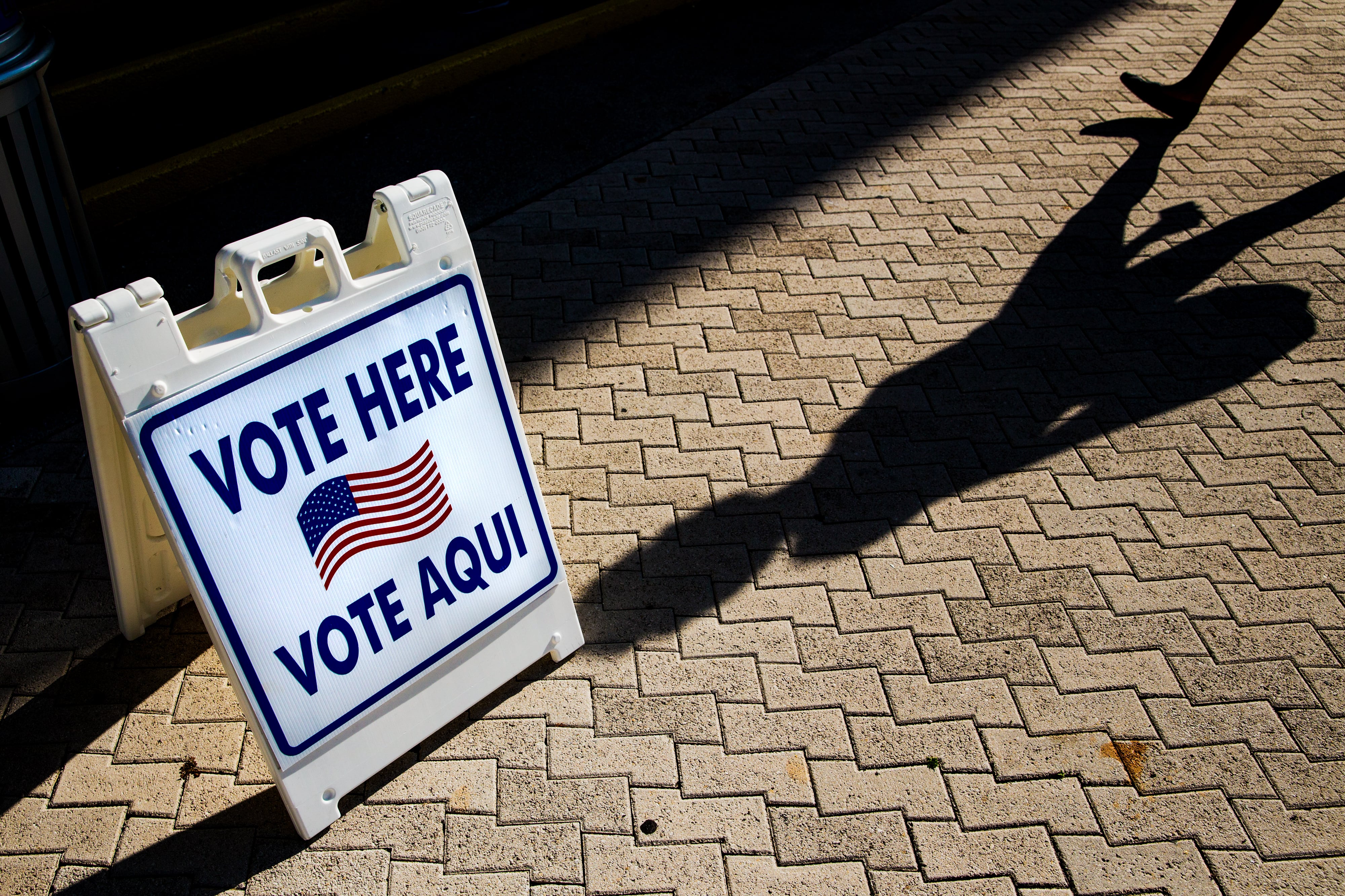At a time when Indiana’s governor will exert greater control over education and school reopening remains a key political issue, Indiana’s largest teachers union said it won’t be taking sides in this fall’s gubernatorial race.
In what some observers say is a pragmatic move to maintain policy influence, the political arm of the Indiana State Teachers Association will not make an endorsement in what looks like an easy cruise to reelection for Republican Gov. Eric Holcomb against Democratic challenger Dr. Woody Myers.
Instead, the Indiana Political Action Committee for Education will focus on supporting dozens of legislative races, particularly those in which teachers are running.
“We’re a small PAC with limited resources, and so we have to be careful with that,” Keith Gambill, ISTA president and a member of the political action committee, told Chalkbeat. “The legislature has been at times a roadblock for positive change for our public schools, and we’ve got to elect more pro-public education candidates into the General Assembly.”
That decision leaves Myers without a key endorsement and funding source that typically boost Democratic candidates for governor, though the American Federation of Teachers Indiana backed his candidacy in May.
The winner of the governor’s race will pick who leads the state’s education department, making this a particularly consequential election to sit out. That marks a change from having voters elect the top education official. School funding will also pose a key issue in 2021, when the next two-year budget will be finalized and when lawmakers could decide on funding cuts for remote learning during the pandemic.
Holcomb holds a heavy advantage in the race, maintaining a consistent lead in the polls and far outraising his competitor. His $9.1 million in campaign cash this year eclipses the roughly $700,000 that Myers has raised. A spokesperson for Holcomb’s campaign declined to comment on the union’s decision.
“If I were going to read the tea leaves, the move was a strategic one,” said Aaron Dusso, an associate professor of political science at IUPUI and chair of the department. It signals that the union wants to build bridges with Holcomb, he said, rather than antagonize him by endorsing his opponent, in order to have more of a say in education policies.
But, Dusso added, it’s a move that also “certainly would be demoralizing to state Democrats.”
Brandon Evans, communications director for Myers’ campaign, said in a statement that Myers “will continue to stand in solidarity with teachers” and holds education as a top priority.
Without a union endorsement, Gambill said both candidates will have to work harder to earn teachers’ votes. Neither candidate, he said, has adequately explained their vision for the role of the top education appointee.
“At this point, both candidates need to get out there to work to convince us that they are going to focus on our issues in order to earn our votes,” Gambill said.
The teachers union PAC, which has about $1 million to spend, has traditionally endorsed Democratic candidates. In 2016, for example, the union’s PAC backed Holcomb’s opponent, John Gregg, giving more than $300,000 to his unsuccessful run for governor, according to campaign finance records.
Many pieces of Myers’ education platform align with ISTA’s priorities. Myers, a physician and former state health commissioner who hopes to become Indiana’s first Black governor, is pushing for less standardized testing, more restrictions on charter schools and school vouchers, and more support for publicly funded preschool. He is also focusing on increasing funding for schools serving disadvantaged students, reducing gaps in academic outcomes for marginalized students, and reducing disproportionately harsh discipline against students of color.
In AFT Indiana’s endorsement, President GlenEva Dunham said Myers’ “strong executive leadership is what Indiana needs today,” noting that “public education in Indiana has been attacked on all fronts over the last 15 years.”
Over the past year, Holcomb has supported educators’ call for higher pay, though ISTA was disappointed that the state didn’t directly set aside more money for it earlier this year. Through the pandemic, he has pledged to continue fully funding schools and has used federal funds to help schools secure masks, hand sanitizer, and internet access for students.
Holcomb also backed the move to put the state superintendent’s post under the governor’s purview. The change aims to improve cooperation between the governor and the top education official, but some see it as taking voice away from teachers.







